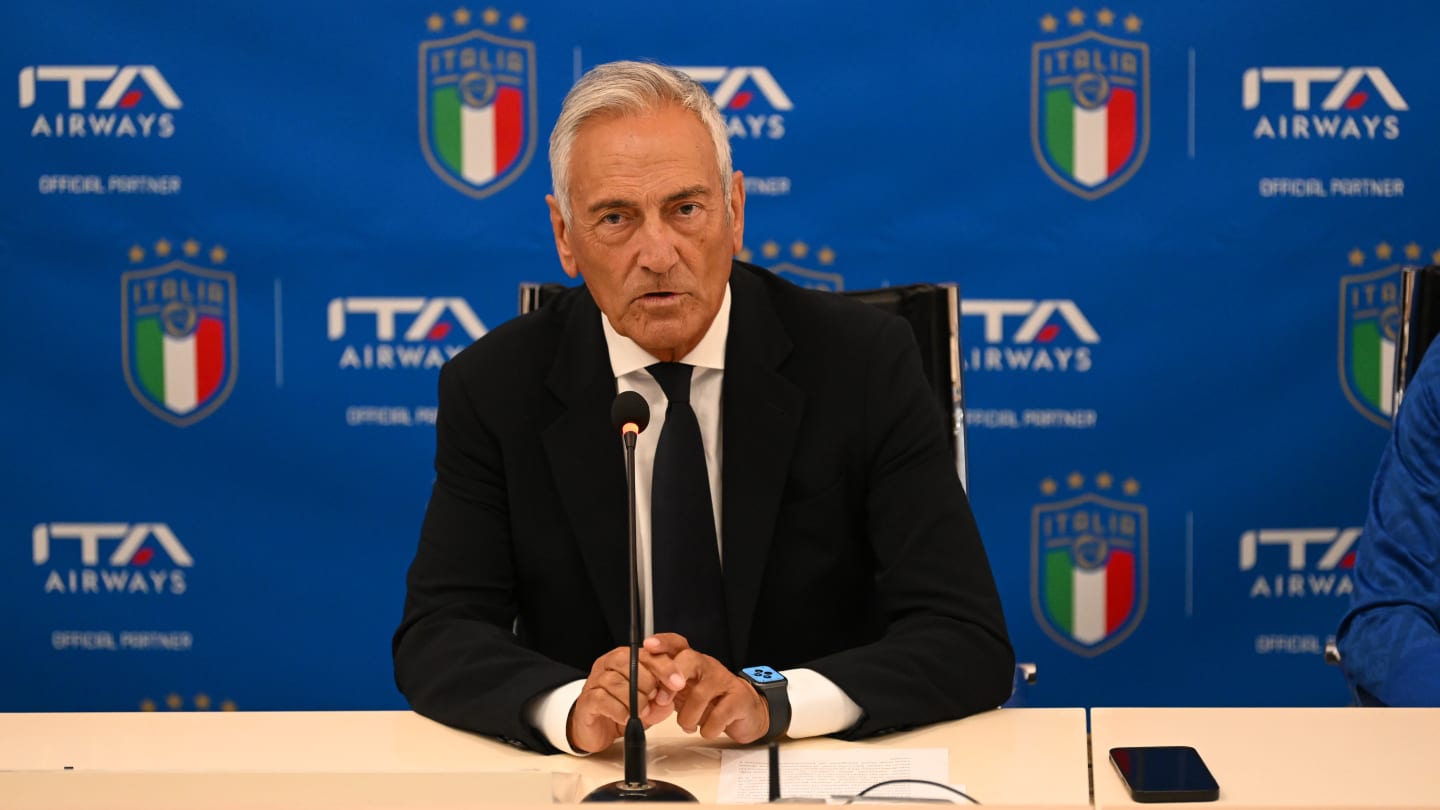In the intricate world of Italian football, where passion often collides with pragmatism, one figure frequently finds himself at the nexus of discussion: Gabriele Gravina, President of the Italian Football Federation (FIGC). Following a recent Federal Council meeting, Gravina offered a comprehensive, and at times candid, assessment of the challenges facing the Italian National Team, delving into everything from strategic fixture management to contentious geopolitical decisions. His comments paint a clear picture of a federation striving to navigate a complex landscape, balancing national ambitions with the realities of club football and external pressures.
The Playoff Predicament: Rescheduling Serie A and the Quest for Cohesion
The specter of playoff qualification looms large for the Azzurri, a scenario that resurrects memories of recent disappointments. Gravina addressed the hypothetical, yet critical, issue of preparing the national team should they enter the playoff rounds. He acknowledged an ongoing dialogue about potentially shifting Serie A`s 30th matchday to grant the national team more preparation time. However, he quickly tempered expectations, labeling the idea of a significant fixture delay as «rather fanciful.» The rigid structure of the football calendar, with its relentless domestic and international commitments, makes such a shift a logistical nightmare that even a seasoned tactician would struggle to unravel.
Instead, Gravina articulated a more pragmatic approach: the implementation of specialized training «stages.» He specifically highlighted a proposed period around February 9-10. The rationale is simple yet profound: to bridge the considerable gap between the last international break in November and the potential playoff matches in March. As Gravina noted, this extended period without direct interaction with the players is a significant hurdle for any national team coach. These stages, if implemented, would offer crucial opportunities for the squad to convene, train, and foster the cohesion vital for high-stakes encounters, demonstrating a proactive effort to mitigate the inherent disadvantages of national team assembly in a congested calendar.
The Azzurri`s Rollercoaster: Performance, Calendar, and a Peculiar Predicament
Gravina`s reflections also touched upon the Italian National Team`s recent trajectory, a journey marked by both exhilarating peaks and unsettling troughs. He candidly recalled a «moment of great difficulty» during the final phase of the European qualifiers, particularly referencing the match against Switzerland as a low point that tested the nation`s collective nerves. Yet, he also celebrated periods of «great exaltation,» citing impressive victories against footballing giants like France and Belgium under the stewardship of Luciano Spalletti. These moments, he asserted, underscore the team`s underlying quality and potential, showcasing their capacity to perform at the highest level.
However, Gravina didn`t shy away from highlighting systemic disadvantages. He pointed to an «evident calendar discomfort,» where Italy frequently found itself playing two competitive matches while direct rivals often had the luxury of a single fixture, allowing for extended preparation. This disparity, Gravina argued, placed the Azzurri at a clear disadvantage, impacting squad recovery and tactical development. Compounding this, he revealed a peculiar, almost ironic, statistical anomaly:
«We risk winning seven out of eight matches and not qualifying, with teams making one point and going to the playoffs.»
This statement, delivered with a hint of incredulity, encapsulates the harsh realities and often unforgiving mathematics of international qualification, where strong individual performances don`t always guarantee advancement if the overall group dynamics and scheduling conspire against you.
Defending the Field: The Israel Match and the Stance Against Disorder
Perhaps the most charged aspect of Gravina`s commentary concerned the decision to proceed with the match against Israel, a fixture played amidst significant protests and civil unrest in Udine. Gravina offered an unequivocal defense of the FIGC`s stance, dismissing criticisms that the game should have been canceled. He firmly asserted that the disturbances were not organic protests but rather the work of «organized gangs» whose intent was purely destructive, aiming to «demolish» the city rather than engage in legitimate advocacy.
«I believe that whoever said not to play the match said a great idiocy,» he stated emphatically, outlining the severe consequences of forfeiture: a lost match, a penalty, and effectively handing Israel an unearned advantage in World Cup qualification.
Such a decision, he argued, runs contrary to the very spirit of sport and aggregation that football aims to foster.
Inside the stadium, Gravina recounted, the atmosphere was one of «celebration, joy, and serenity.» This stark contrast to the external turmoil underscored his belief that football should remain a unifying force, even in tumultuous times. He even noted the almost symbolic timing of the match, occurring just days after a seemingly «unstoppable conflict» had been suspended. His message was clear: while acknowledging global complexities, the role of football leadership is to ensure the game continues, fostering connections and maintaining competitive integrity, rather than capitulating to external forces determined to disrupt peace and order.
Conclusion: A Federation`s Steadfast Resolve
Gabriele Gravina`s recent address offers a window into the multifaceted challenges inherent in governing Italian football. From the strategic chess game of fixture management and national team preparation to the resolute defense of controversial decisions amidst social upheaval, his leadership is characterized by a blend of pragmatism, ambition, and a steadfast commitment to the sport`s principles. As the Italian National Team continues its journey, Gravina`s insights remind us that success on the pitch is often the culmination of meticulous planning, shrewd negotiation, and an unwavering resolve off it. The path ahead is undoubtedly complex, but under Gravina`s guidance, the FIGC appears determined to tackle each challenge head-on, ensuring Italy remains a formidable presence on the global football stage.

